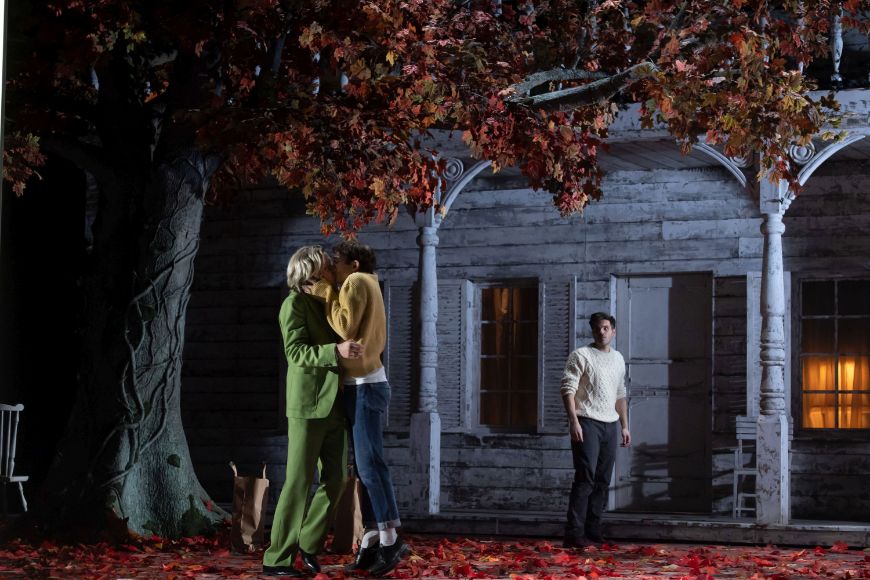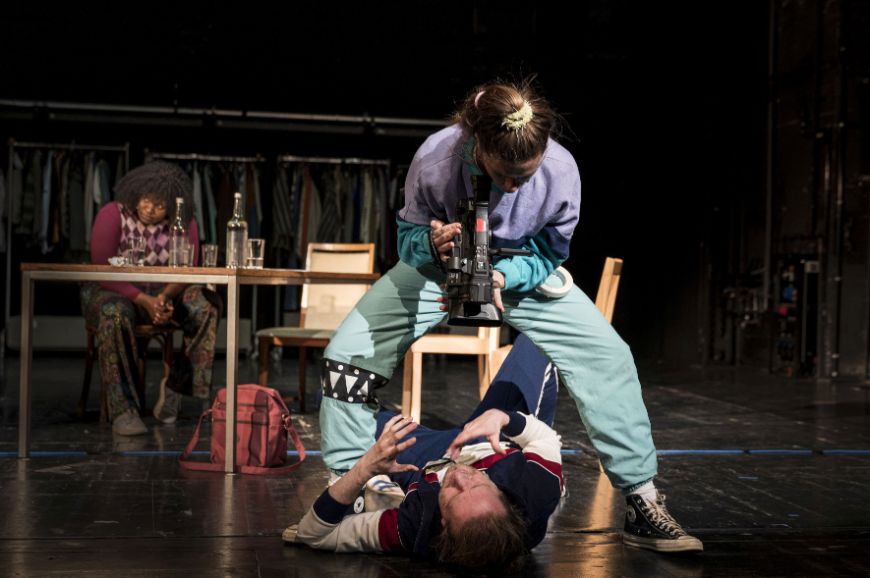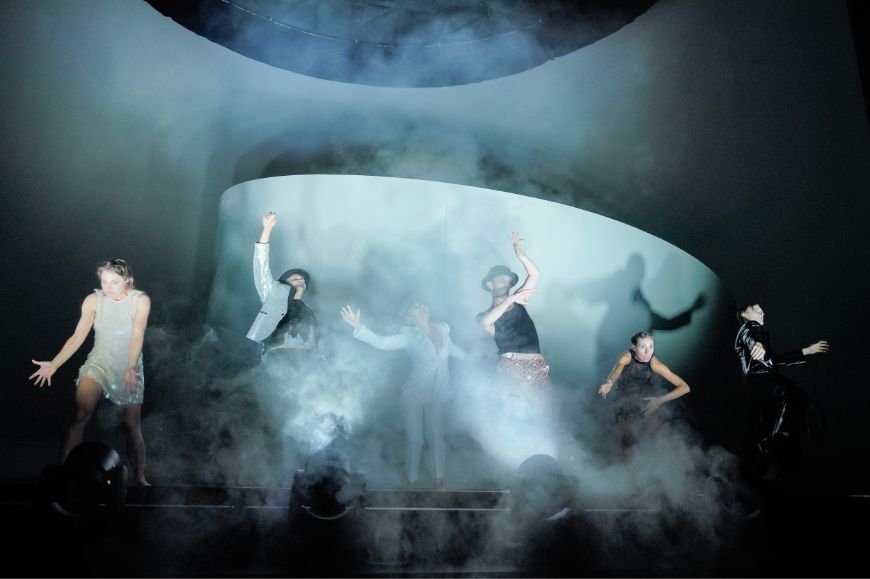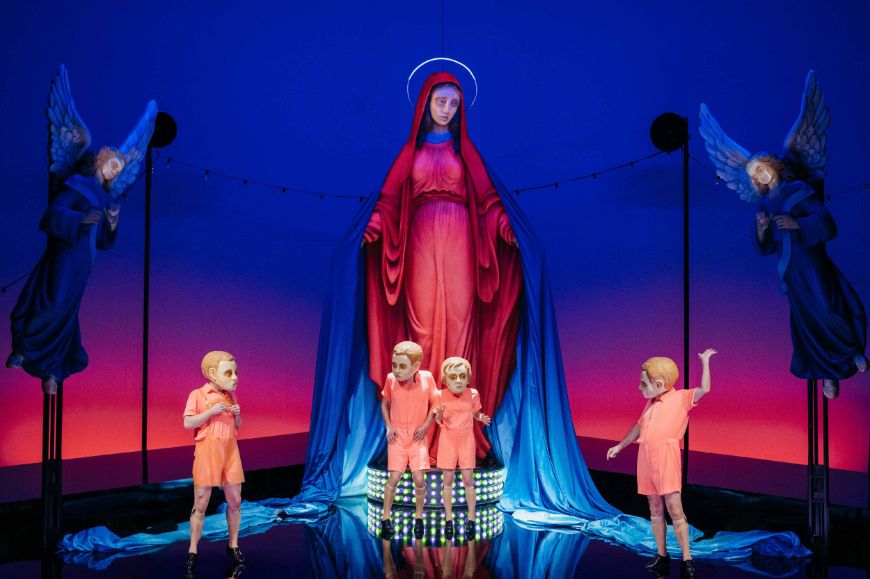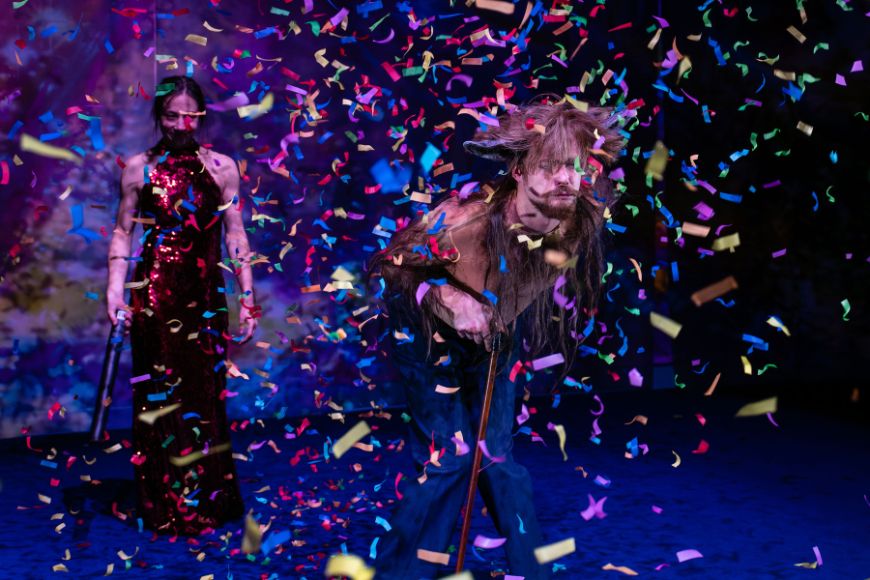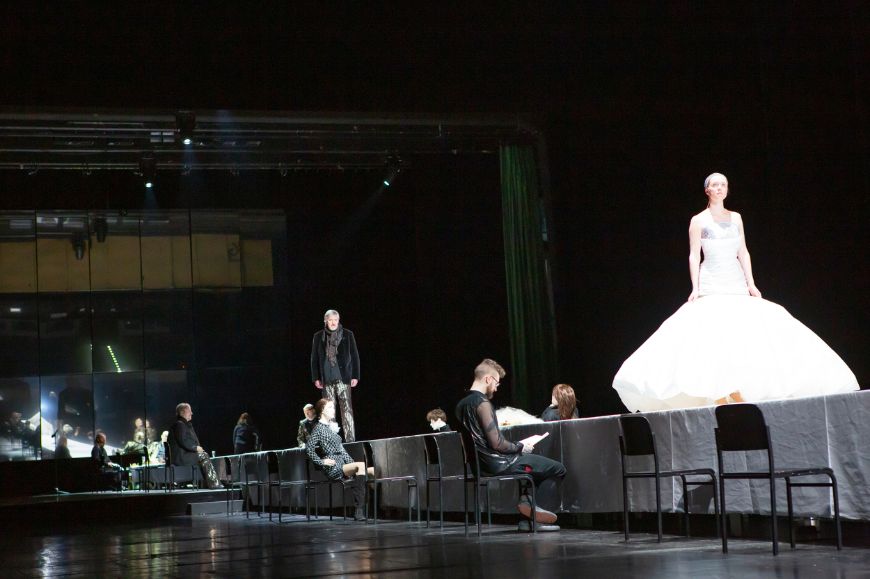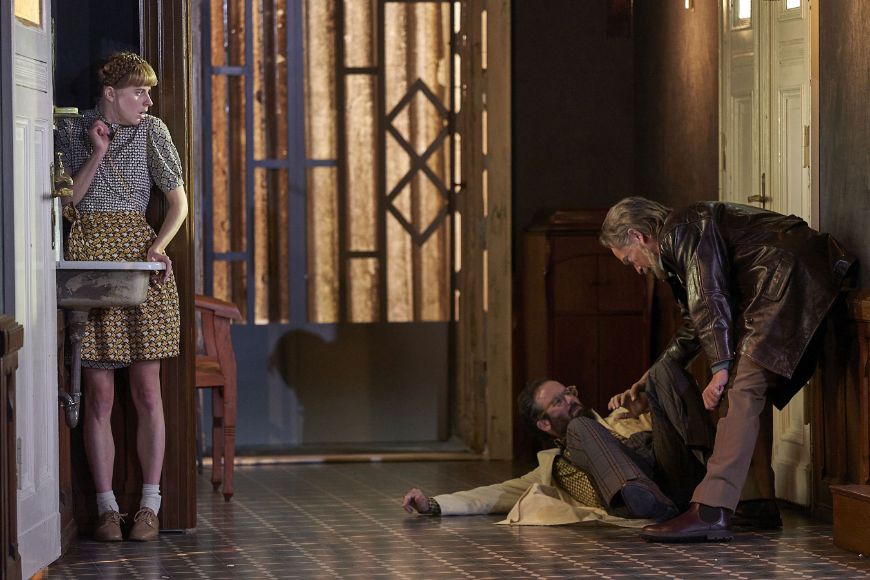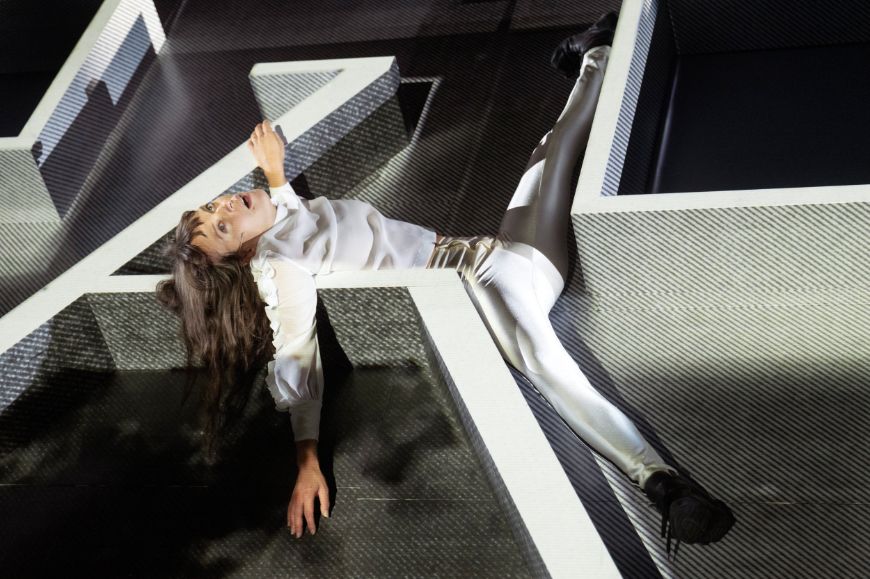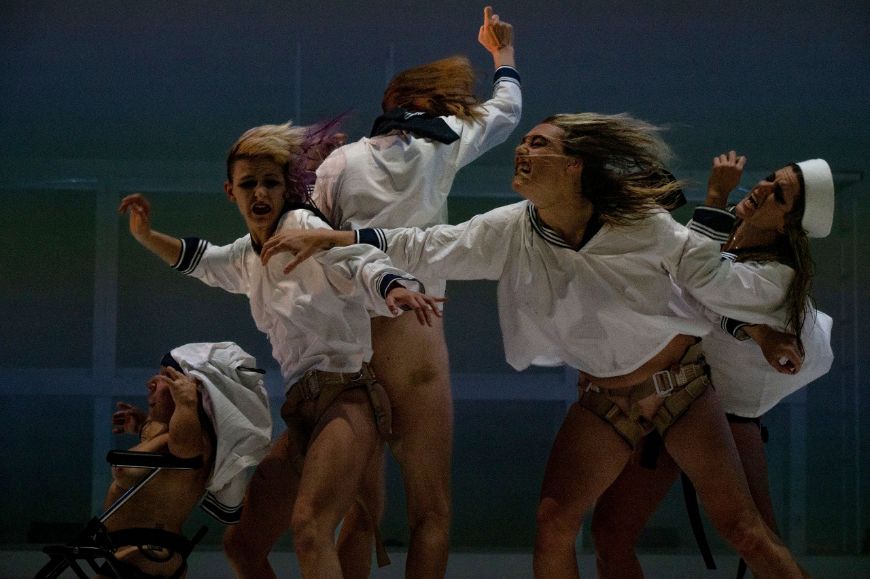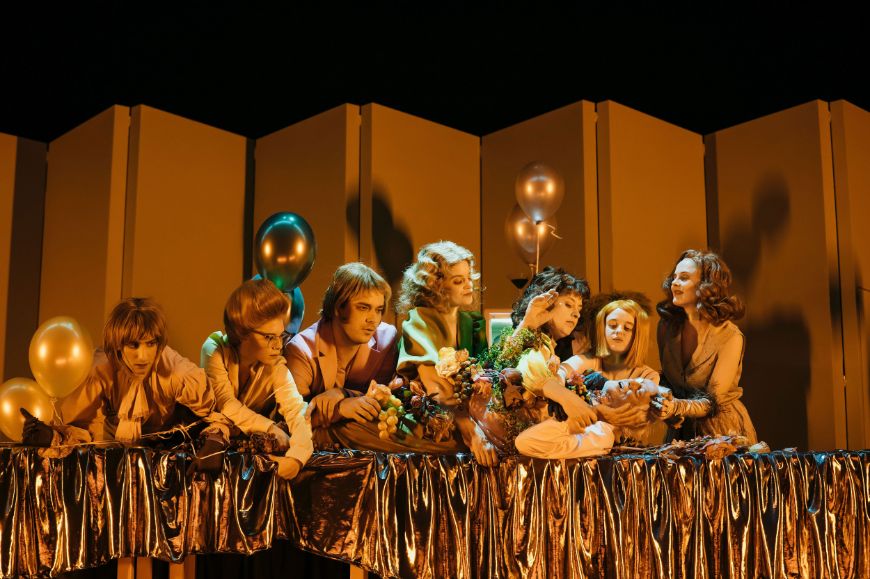Text | Essay | Theatertreffen 2023
Reclaiming Art in Times of Uncertainty
The 21st century’s third decade soon revealed itself to be an era of crises: The pandemic was followed by war in Ukraine, a war that has claimed countless victims, put an end to political illusions and carries the nuclear threat in its wake. At this point, its consequences for our world order cannot yet be gauged. To say nothing of the consequences of climate change, which is gradually approaching the point of no return: a literally overheated atmosphere which erodes both our cultural understanding of ourselves and the fabric of our society.
And the theatre? After the end of lockdown, it seems to be on some kind of race to catch up: It is trying to find its position amid the multi-crisis; it wants to have a say on everything while struggling to win back an audience that is returning only very gradually. There is a wide gap between aspirations and reality, and this includes the internal structures of the institutions. Hierarchies and structural discrimination are proving surprisingly persistent, although it is becoming generally evident that the theatre landscape is undergoing a transformation. The Whence, Where to and Wherefore of the theatre were a topic of several productions under discussion – such as Sebastian Nübling’s tussle with Sivan Ben Yishai’s “Bühnenbeschimpfung (Liebe ich es nicht mehr oder liebe ich es zu sehr?)” or the both self-reflective and self-ironic “Karoline und Kasimir – Noli me tangere” by Nature Theatre of Oklahoma. And in Jan-Christoph Gockel’s Alexander-Kluge-revue “Wer immer hofft, stirbt singend”, the power of imagination even prevented bombs from impacting.
Regardless of occasional scenes like this, the calendar year of 2022, which finds reflection in the 2023 Theatertreffen, was informed by insecurities rather than by optimism. At times, we jury members too wondered whether the theatre really was the most pressing issue of the moment. And often enough, we saw productions that seemed to ask themselves the same question. Productions that bent over backwards to include references to burning topics without the aesthetic chops to withstand them. That would have loved to talk about everything at once, but wouldn’t make their position clear – a kind vampirism, consuming reality in the struggle for their own importance. But of course, there were also shows that broke down the great crisis to the interpersonal level and insisted on their joy of performing, no matter what.
Thorsten Lensing’s “Verrückt nach Trost” took this to the next level. This show from the independent theatre scene celebrates acting in its pure form and the power of As-If. And even though this show is not part of this year’s selection, its zest for transformation provides a kind of background noise to the invited productions. And a motto: Crazy for consolation, we go to the theatre to look for something that we can only find there. It will probably not give solutions to the multi-crisis, but the stage is unrivalled as a village green and a place to exchange thoughts and emotions.
And the audience can always be counted to bring current reality into the theatre. If you looked down from the gallery of Anhaltisches Theater Dessau in the spring of 2022 and saw a seemingly endless table, you might have been reminded of Putin’s table, which was an early marker of the distance which the Russian president kept from the reality of other European heads of state. Philipp Preuss’ “Hamlet” is one of the selected productions for 2023: A show of open connotations and powerful images, it deals with the boundaries between dream and delusion, and with vanishing certainties. When the performance has reached its end after a little more than two hours, it starts all over again – like the cycle of violence and human shortcomings that is impossible to escape.
In Felicitas Brucker’s production of “Nora”, Henrik Ibsen’s play has been punctured by new texts written by Sivan Ben Yishai, Gerhild Steinbuch and Ivna Žic, and the director is not afraid to show the visible seams. At Münchner Kammerspiele, she unleashes her cast of five actors on a slanted house wall. Viva Schudt’s upside-down “doll’s”- or “master’s house” is an impressive metaphor for a patriarchal system that demands contortions not just from the women, but makes everybody trip up. In the title role, the equally sportive and musical Katharina Bach provides essentially pointless proof for the fact that the theatre of actors is far from dead.
Three among the ten remarkable productions have also opted to work with large and outstanding ensembles: “Das Vermächtnis (The Inheritance)” from Munich’s Residenztheater, “Kinder der Sonne” from Schauspielhaus Bochum and “Ein Sommernachtstraum” from Theater Basel. And yet they could not be more different from each other. In Munich, director Philipp Stölzl, who is well-versed in costume films and opera, is not afraid of pathos and big emotions. His production of the Broadway-success by Matthew Lopez portrays the lives of gay men in New York from the rampage of the 1980s AIDS-epidemic to the Trump-era. A play about HIV with added blockbuster-potential: In German-language theatre, this is such a novelty that several theatres took a run at it. We were most impressed by the casualness with which Stölzl tackles the material. In a naturalist set, eleven actors do one thing above all: they play roles. And how! How often do we see binge watching at the theatre, with the audience – from queer youths to well-situated elderly couples – mesmerised by the pull of the story?
Mateja Koležnik’s staging of Gorki‘s “Kinder der Sonne” is traditional in the best sense of the word because it stays close to the text with great psychological delicacy. A privileged society resides in Raimund Orfeo Voigt’s detail-rich set, thinking that they can afford to bury their heads in the sand. Busy with their research, their love affairs and private problems, they fail to pay attention to world outside, where cholera rages and the people revolt. This is not only so close to our own times that it needs no update. Mateja Koležnik’s psychological realism, which gently shifts the focus onto the play’s back rooms and secondary characters, has never worked as well as in this show, which is brilliantly cast down to the smallest minor role.
The “Sommernachtstraum” from Basel also lays on a cast of superb actors. Director Antú Romero Nunes has shifted the action into a school assembly hall: A droll amateur acting troupe of teachers originally only wanted to rehearse the craftsmen’s scene, but – enchanted by the magic of the theatre – they act out nearly the entire play. It’s a crowd-pleaser full of pointed studies of types and it shows how incredibly enjoyable the theatre can be.
The antithesis to subtly crafted actors’ theatre is marked this year by Florentina Holzinger’s opulent and circuslike performance “Ophelia’s Got Talent” and Sebastian Hartmann’s “Der Einzige und sein Eigentum”. Two productions from Berlin, two overwhelming spectacles!
For a whole three hours, Holzinger’s superheroines proffer theatre as high performance sports, diving into water basins or soaring into the air to capture a helicopter while masturbating. The performance follows a dramaturgy of escalating stunts: From freediving to live-tattooing, it heaps attraction upon attraction. As in her earlier work “TANZ”, Holzinger helps herself generously to traditions of pop, art and dance. The declared goal of this exhausting endeavour: To reclaim the female body from male fantasies. Wit and rage in close proximity.
While Holzinger is interested in awakening female community spirit, Max Stirner’s “Der Einzige und sein Eigentum” revolves entirely around the Self. Director and set designer Sebastian Hartmann and composer PC Nackt have turned this philosophical essay from the year 1844 into a very specific form of musical theatre, full of weirdly beautiful sounds and cryptic songs that generate endless new interpretations. In all its delight in acting and its theatrical furor, “Der Einzige und sein Eigentum” recalls the great revues of the 1920s. One of the show’s highlights: a 3D-animated beehive.
With Lucia Bihler and Rieke Süßkow, the 2023 selection of ten remarkable productions introduces a new generation of young female directors who respond to the theatre with a firm formal intention and unconventional worlds of imagery. Bihler produced “Die Eingeborenen von Maria Blut” at Vienna’s Akademietheater. The novel which it is based on was written in exile in the year 1937 and provides a lucid analysis of the susceptibility of provincial Catholic regions for emerging fascism. A pithy performance with and without masks unfolds, throwing harsh highlights on a doomed world.
Rieke Süßkow confidently places her scenic interpretation of Peter Handke’s “Zwiegespräch”, another production from the Akademietheater, next to, under and over the Nobel Prize laureate’s text. Süßkow breaks open the written speech acts and distributes them between a cast of stage grandees and newcomers. She transfers the action to a nursing home and establishes a generational conflict that may not be inherent in the text but gives the show a scenic charge and edge.
The Dutch collective De Warme Winkel undertakes a risky experiment in “Der Bus nach Dachau”, which addresses the memory of the Holocaust. The generation of the last witnesses of this period is gradually passing away and their disappearance will inevitably change the culture of remembrance. How to talk about the unimaginable if there is no one left who lived through it? Historians have asked this question for a while; in the theatre, however, the subject of “Der Bus nach Dachau” enters uncharted waters. De Warme Winkel and the cast from Bochum are looking at the devices of theatre, film and new media to provide answers, some of which are hilarious. A performance that invites objections.
Traditional actors’ theatre and spectacle, stories and edgy experiments as well as a wide range of themes: The 2023 Theatertreffen cannot be reduced to a common denominator of either content or form – except perhaps for the fact that it confronts the great confusion of our times with an equally great variety. So, no answers, no hope, no consolation? Not unless we discover a glimmer of Utopia in the celebration of the art of acting and transformation per se. And thus a little bit of consolation and at least a hint of hope.
